
What is PKM?
PKM is a new term to describe an old problem:
"How do we make sense of the world?"
A thread: 🧵
PKM is a new term to describe an old problem:
"How do we make sense of the world?"
A thread: 🧵
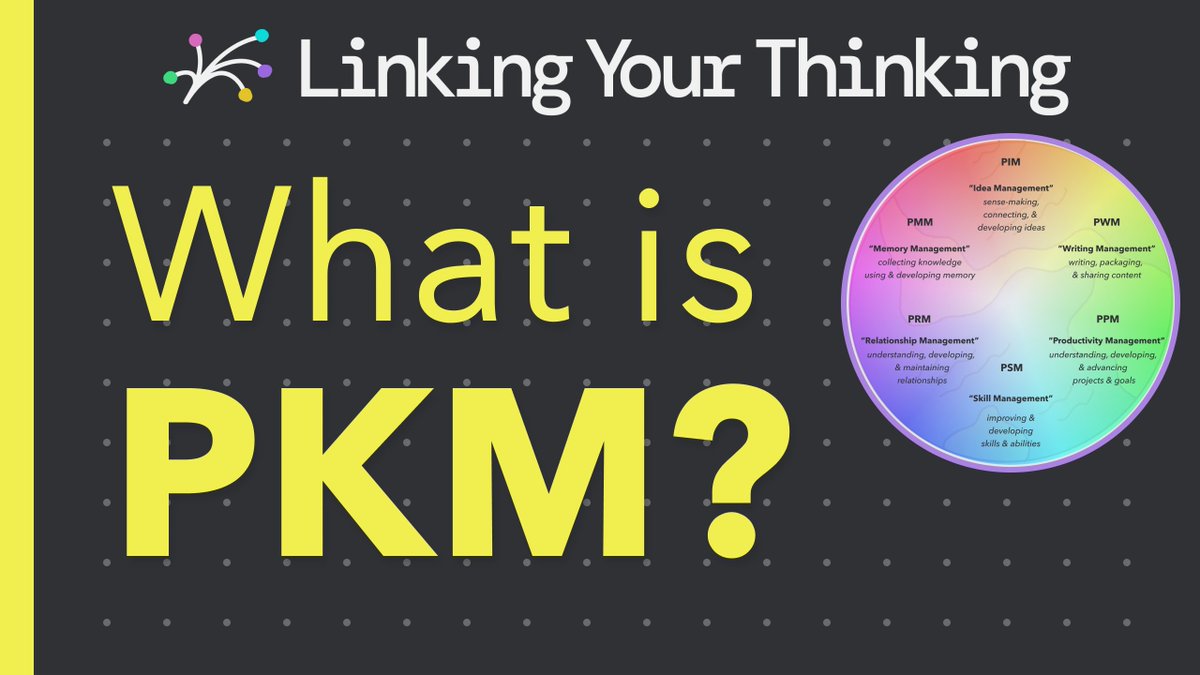
⚜️Maybe you're trying to get through history class...or write your dissertation for a PhD.
⚜️Maybe you've gone down the internet rabbit hole into some fascinating topic but don't want to forget everything by next week.
⚜️Maybe you've gone down the internet rabbit hole into some fascinating topic but don't want to forget everything by next week.
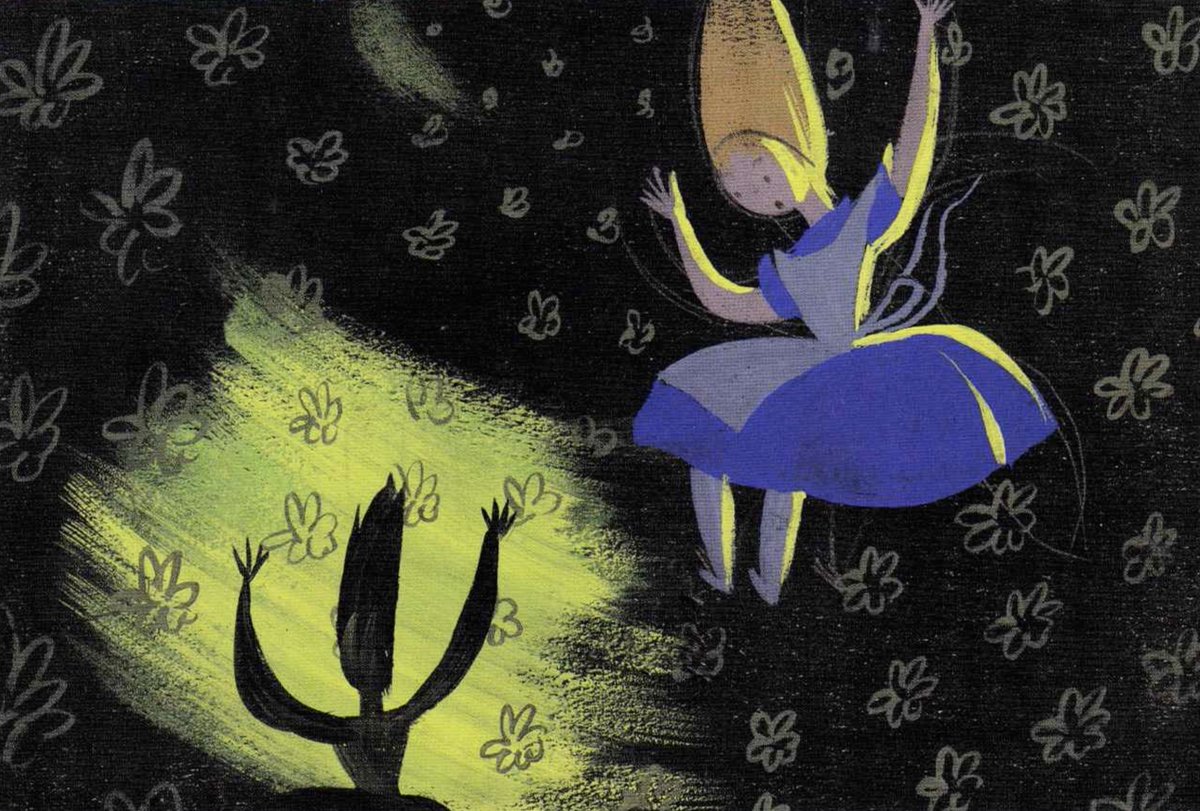
⚜️Maybe you're putting together a grocery list or a list of todos for the day.
⚜️Maybe you're working your way in a new career, trying to track who knows who, and how, and how that's relevant to your aspirations.
⚜️Maybe you're working your way in a new career, trying to track who knows who, and how, and how that's relevant to your aspirations.
⚜️Maybe you just love ideas...and get inspired and blown away by how the plow—yes the plow—changed humanity (shout out to James Burke). 

⚜️Maybe you want to remember the memories you had with cherished friends and family, some of whom aren't around anymore—except in memory.
⚜️Maybe you want to figure out how to go about living a good life—something the Ancient Greeks might call it "Eudaimonia".
⚜️Maybe you want to figure out how to go about living a good life—something the Ancient Greeks might call it "Eudaimonia".
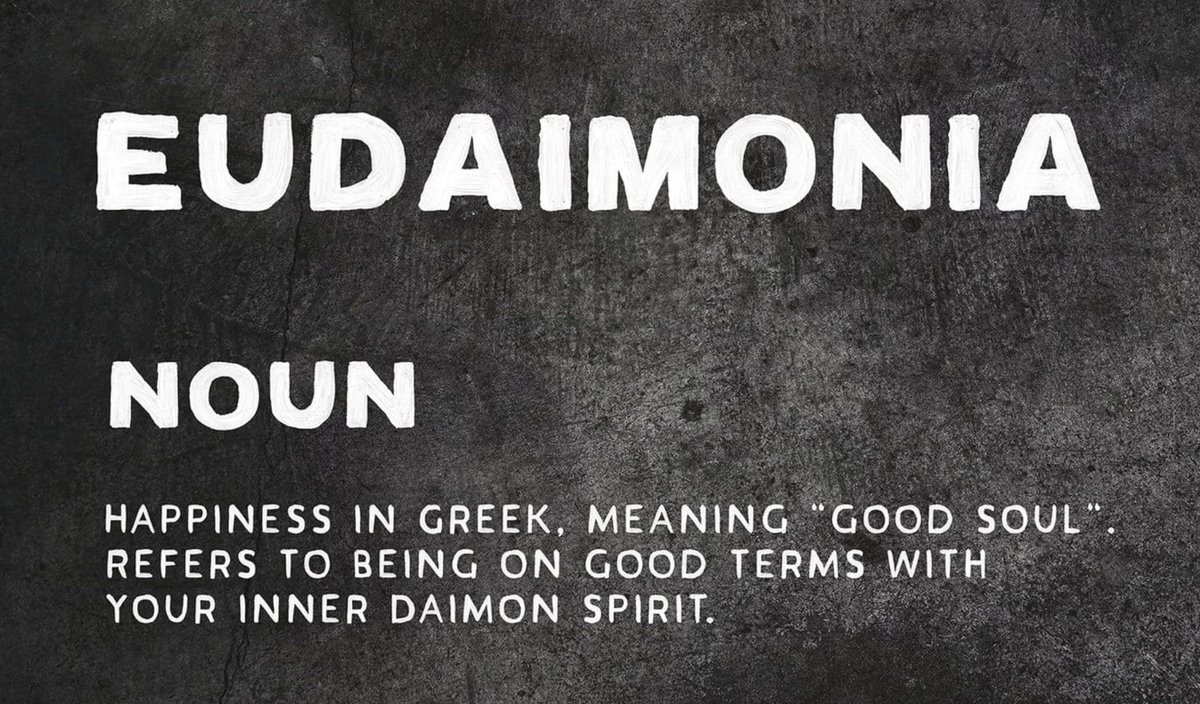
If you do anything like this, then you're managing knowledge.
That's PKM 🌏
(Oh btw, check out the super awesome companion Youtube video: )
That's PKM 🌏
(Oh btw, check out the super awesome companion Youtube video: )
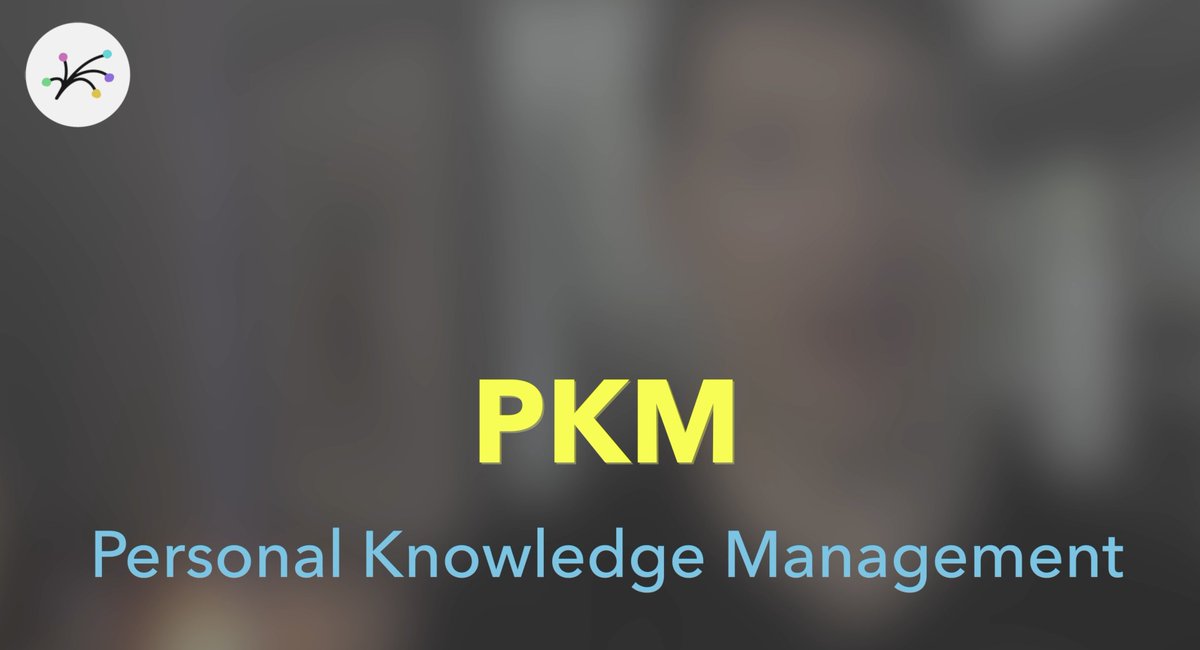
Personal knowledge management is really about the *process of making sense of the world.
Sense-making. ✨
How do we make sense of the world? Now that's a thread that once you start pulling, it unravels all sorts of juicy questions...🧶
Sense-making. ✨
How do we make sense of the world? Now that's a thread that once you start pulling, it unravels all sorts of juicy questions...🧶
I mean, PKM makes us ask: What should I do in this world? How should I conduct myself? Where should I spend my limited amount of attention? What really matters?
If we decide these existential questions are fundamental to a "life worth living", then we better have a way of dealing with all the STUFF—you know, the intangible ether of ideas—the stuff that surrounds all of our waking, living, breathing moments.
Since there are so many ways to manage knowledge, it would be helpful to have a framework we can all point to. To that end, I'm excited to share the PKM Planet. 
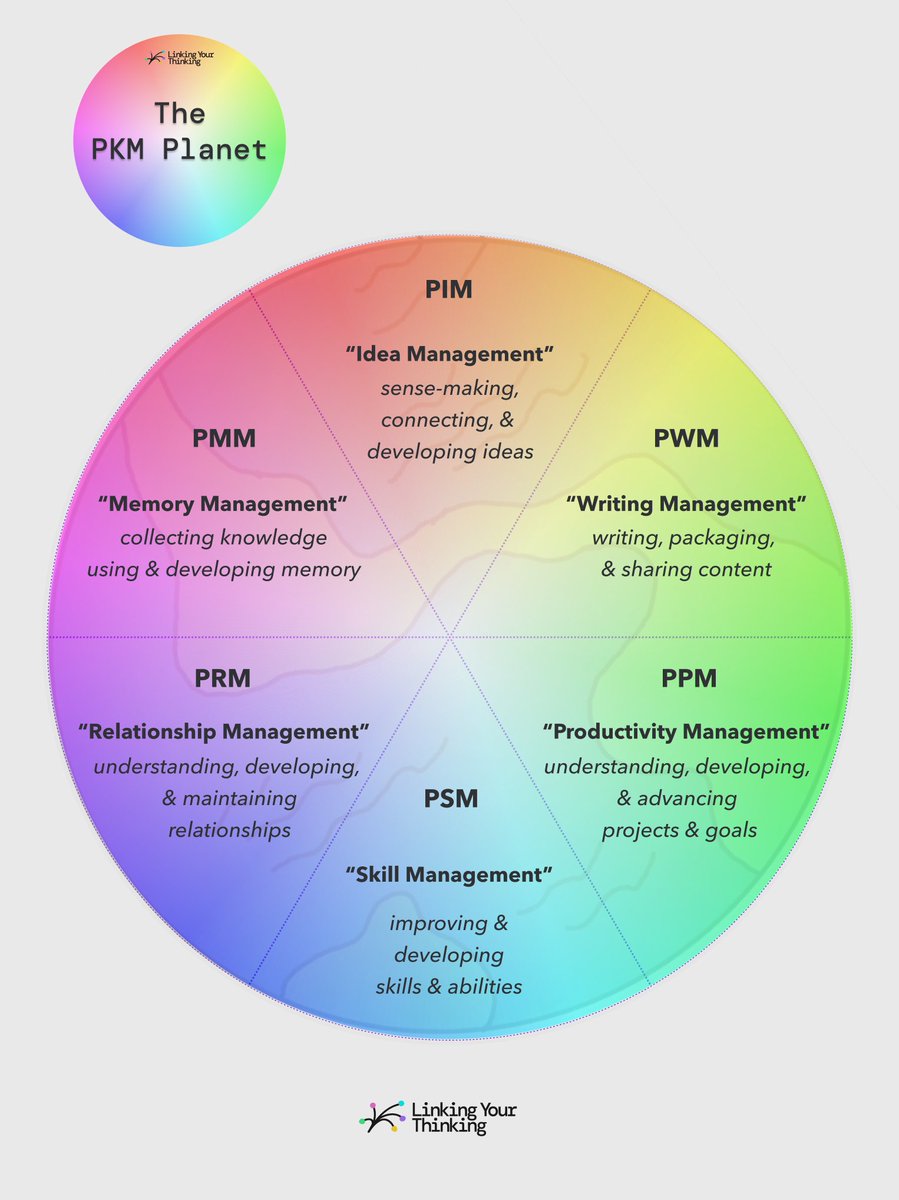
The PKM Planet allows us to see WHERE and think about HOW we are spending our time in the world of knowledge management.
You can't fix what you don't know is broken.
You can't fix what you don't know is broken.
Welcome to the PKM Planet. On this planet, there are six main area/lands/realms where we spend time managing knowledge: Memory, Idea, Writing, Productivity, Skills, and Relationships. 
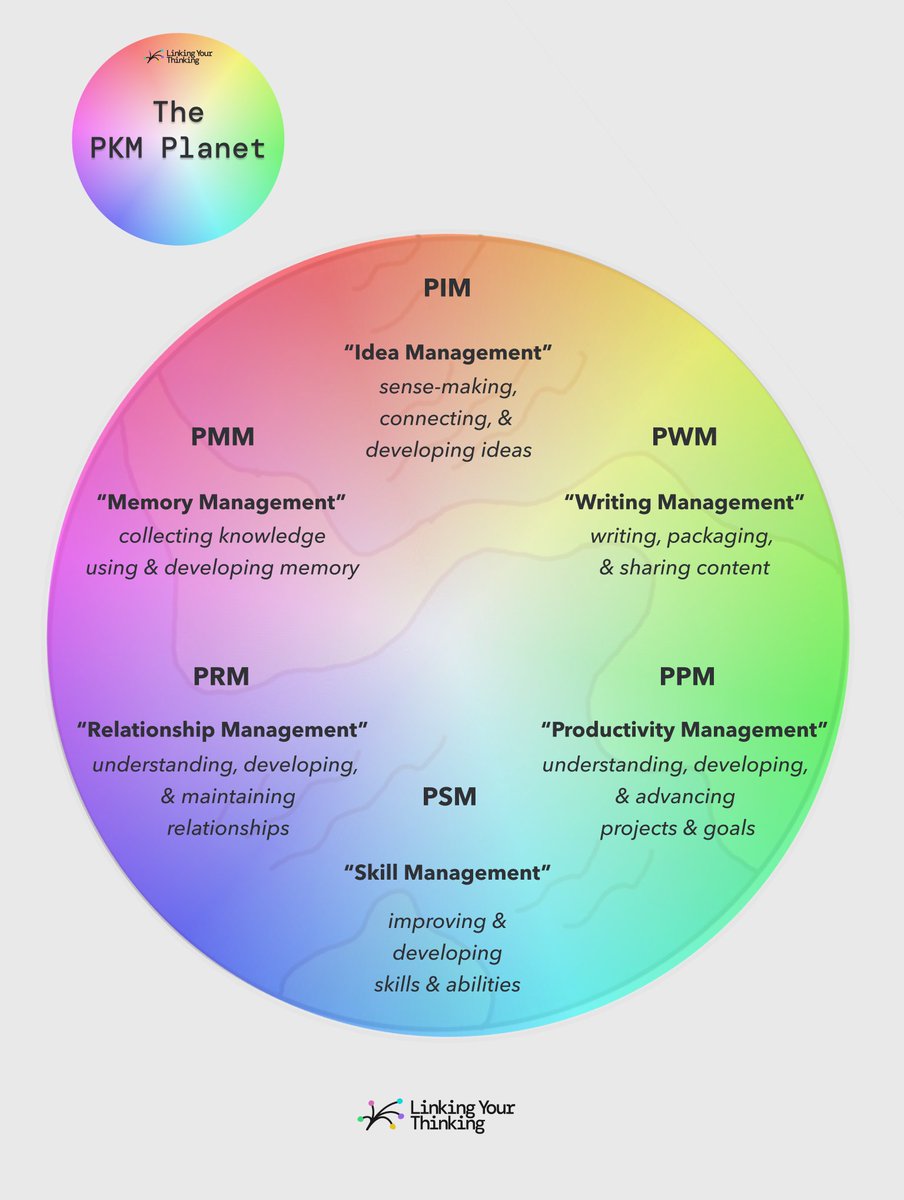
PMM — "Memory Management" — collecting knowledge, using & developing memory
PIM — "Idea Management" — sense-making, connecting, & developing ideas
PWM — "Writing Management" — writing, packaging, & sharing content
PIM — "Idea Management" — sense-making, connecting, & developing ideas
PWM — "Writing Management" — writing, packaging, & sharing content
PPM — "Productivity Management" — understanding, developing, & advancing projects & goals
PSM — "Skill Management" —
improving & developing skills & abilities
PRM — "Relationship Management" — understanding, developing, & maintaining relationships
PSM — "Skill Management" —
improving & developing skills & abilities
PRM — "Relationship Management" — understanding, developing, & maintaining relationships
In practice, these areas often overlap: as you connect ideas you write about them, as you write about them you might be working towards a goal or advancing a project.
That's why the PKM Planet is a blended color wheel filled with all shades under the sun.
That's why the PKM Planet is a blended color wheel filled with all shades under the sun.
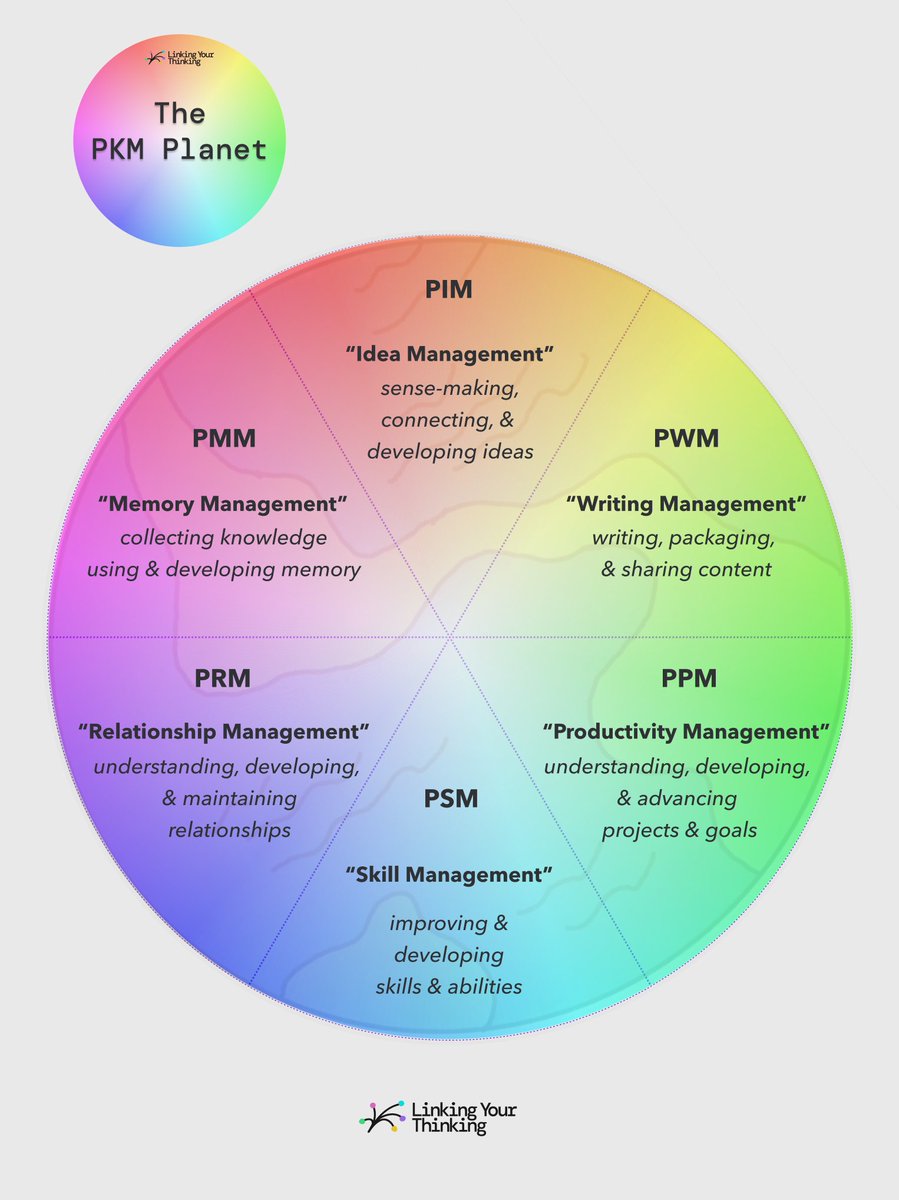
The beauty of the PKM Planet is that it forces the question: Where am I spending time in my management of knowledge? And how?
Using the PKM Planet, we can finally map our use cases in a common way.
We can more easily explain to people where we are spending our time in this hard to describe world of PKM.
And it turns out, there are common PKM ARCHETYPES.
We can more easily explain to people where we are spending our time in this hard to describe world of PKM.
And it turns out, there are common PKM ARCHETYPES.

𝌎 PKM Archetypes 𝌎
Using the PKM Planet, we can show the differences between ⚜️Top-down vs ⚜️ Bottom-up thinkers.
Using the PKM Planet, we can show the differences between ⚜️Top-down vs ⚜️ Bottom-up thinkers.
𝌎 PKM Archetypes 𝌎
Using the PKM Planet, we can show the difference between ⚜️ Note-takers vs ⚜️ Note-makers. Especially the Note-takers who summarize so much they never get around to making sense of things. Those Note-takers are being trained to be Regurgitators 👇
Using the PKM Planet, we can show the difference between ⚜️ Note-takers vs ⚜️ Note-makers. Especially the Note-takers who summarize so much they never get around to making sense of things. Those Note-takers are being trained to be Regurgitators 👇
𝌎 PKM Archetypes 𝌎
Many over-summarizing Note-takers are developing the skills necessary to be excellent ⚜️ Content Regurgitators. Being one is how many folks gained their social media followers.
Many over-summarizing Note-takers are developing the skills necessary to be excellent ⚜️ Content Regurgitators. Being one is how many folks gained their social media followers.
𝌎 PKM Archetypes 𝌎
The key to being an awesome Content Regurgitator is to reduce the amount of time you waste "thinking" because that's time you could be tweeting the thoughts of other people. (More on this later.)
The key to being an awesome Content Regurgitator is to reduce the amount of time you waste "thinking" because that's time you could be tweeting the thoughts of other people. (More on this later.)
𝌎 PKM Archetypes 𝌎
How can we recognize the content regurgitators from the sense-makers? We can actually map their different weather patterns on the PKM Planet.
How can we recognize the content regurgitators from the sense-makers? We can actually map their different weather patterns on the PKM Planet.
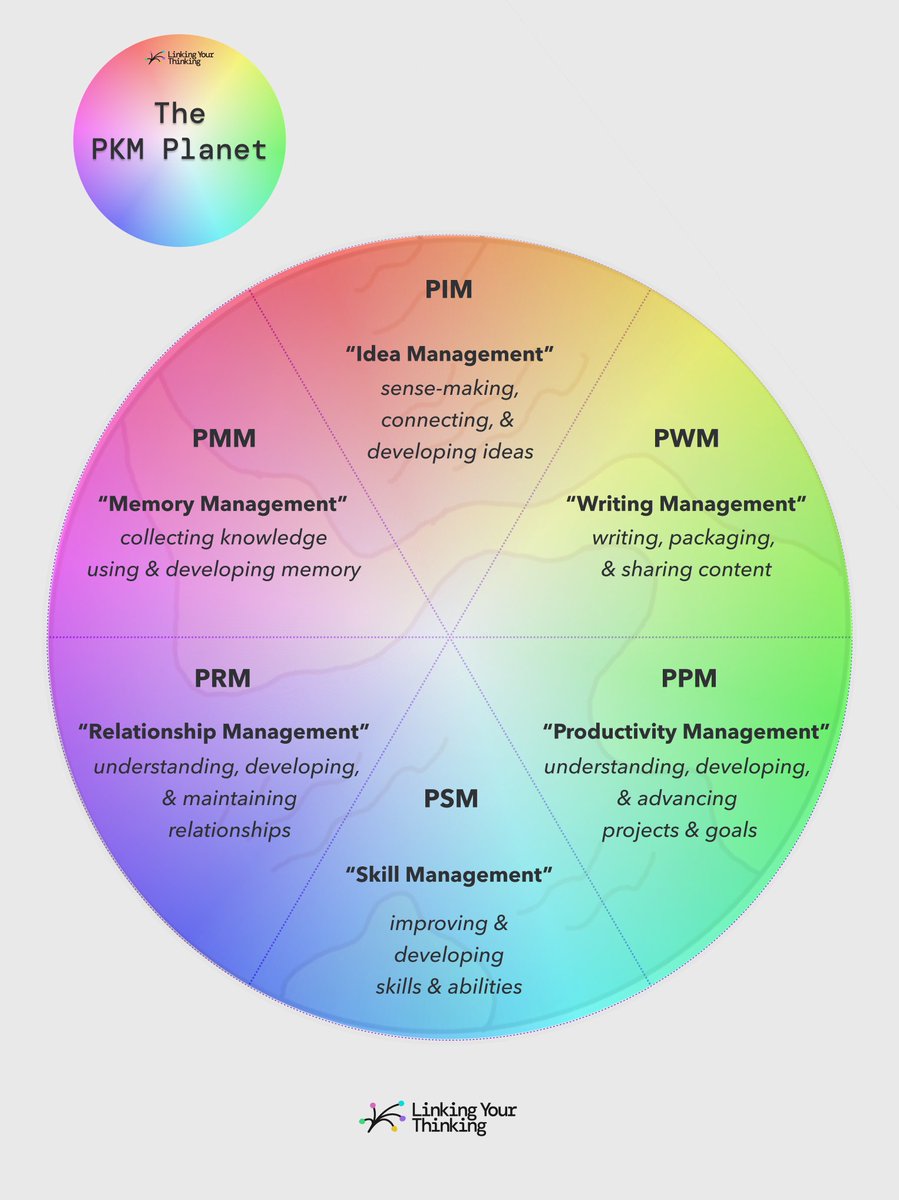
𝌎 PKM Archetypes 𝌎
Are you a writer? A journaler? A fiction writer? A worldbuilder? How do those workflows map on the PKM Planet.
Are you a writer? A journaler? A fiction writer? A worldbuilder? How do those workflows map on the PKM Planet.
𝌎 PKM Archetypes 𝌎
Are you a Personal Development Nerd? A project manager? Your time spent on the PKM Planet can be mapped to show a unified view of where you spend your thinking time.
Are you a Personal Development Nerd? A project manager? Your time spent on the PKM Planet can be mapped to show a unified view of where you spend your thinking time.
𝌎 PKM Archetypes 𝌎
Are you a student? What kind? A "churn and burn" student, or a "know and grow"? We'll explore the different goals and ocean currents on a student's PKM planet.
Are you a student? What kind? A "churn and burn" student, or a "know and grow"? We'll explore the different goals and ocean currents on a student's PKM planet.
𝌎 PKM Archetypes 𝌎
Maybe you want to keep track of a few people in your personal and professional life. What are the weather patterns on your PKM Planet?
Maybe you want to keep track of a few people in your personal and professional life. What are the weather patterns on your PKM Planet?
𝌎 PKM Archetypes 𝌎
Knowing these archetypes will help you avoid some of the most common pitfalls in knowledge management, while spending more time confidently saving, developing, and maturing your ideas, sustainably, over time.
Knowing these archetypes will help you avoid some of the most common pitfalls in knowledge management, while spending more time confidently saving, developing, and maturing your ideas, sustainably, over time.
So...What is PKM?
If PKM could utter a single line, it would be this: Through me, you make sense of the world.
That's fundamentally important, because through your sense of the world, all your actions are influenced.
If PKM could utter a single line, it would be this: Through me, you make sense of the world.
That's fundamentally important, because through your sense of the world, all your actions are influenced.
Through better sense-making, you become empowered to create better, learn faster, work at a higher and more sustainable level, and yet, stay grounded and focused as the world attempts to tear apart your attention.
Through better sense-making by digitally linking your thinking: you can develop your ideas over decades, you can make more valuable leaps of insights, and all the while, you can't help but train yourself into the habit of better thinking.
Better Thinking? Do explain!
By "better thinking", I mean ability to think critically, creatively, and connectively—all at the same time.
By "better thinking", I mean ability to think critically, creatively, and connectively—all at the same time.
Linking your thinking can become sustainable sense-making that will fill your thoughts with more joy, meaning, and personally unique perspectives.
Armed with all of that, you can't help but be able to contribute more value in more ways to your family, your friends, your community, and society as a whole—and it's all from developing a personal environment to encourage, nurture, develop, and reliably save your best thinking.
That, is the premise and the promise of a personal, knowledge management system.
That's PKM.
That's PKM.
This is the first in the ongoing "What is PKM?" series. Join the LYT Notes newsletter so you can see which PKM Archetypes most closely match you!
linkingyourthinking.com/lytnotes
[[Stay Connected]]
Nick
🧵
linkingyourthinking.com/lytnotes
[[Stay Connected]]
Nick
🧵
• • •
Missing some Tweet in this thread? You can try to
force a refresh







